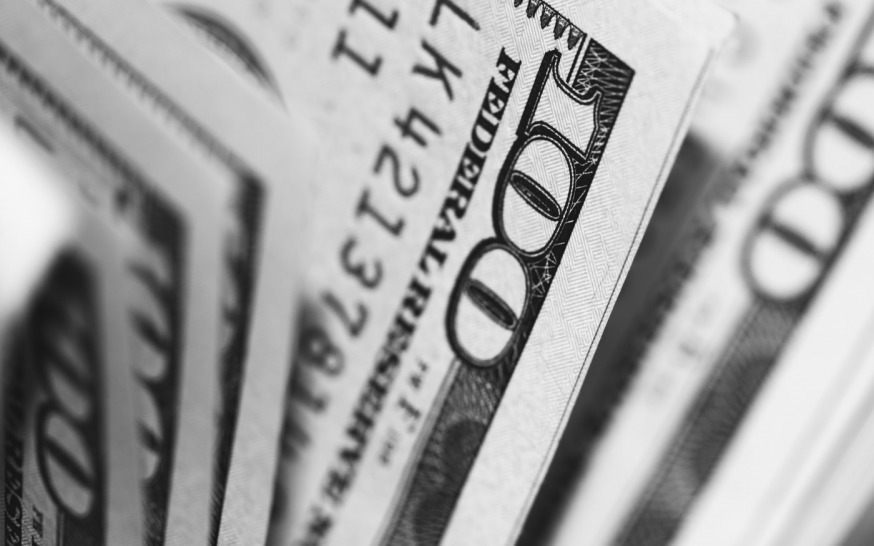
Stock: Unsplash
April 22, 2020 By Christian Murray
A federal loan program designed to help small businesses stay afloat is likely to get a $310 billion injection in cash in coming days—but critics argue that it will not do much to save Queens businesses.
The Payment Protection Program, which essentially provides business owners with a forgivable loan equivalent to 2 1/2 months of payroll, was launched on April 3 and only a limited number of businesses in Queens were able to tap into the program.
The program, which was funded to the tune of $349 billion, ran out of cash within two weeks, before many small and micro businesses got their paperwork in order to apply.
“To date, I have not spoken to a single small business that has gotten a single cent from the Payment Protection Program,” said Tom Grech, the president and CEO of the Queens Chamber of Commerce on Wednesday. “This is unacceptable.”
Congress is likely to allocate $310 billion to restart the program this week—a figure Grech said is not going to be enough.
“The sheer volume of businesses in the United States vying for these funds doesn’t make it look all that promising,” Grech said. “I don’t see the government being able to get the right amount of money in the rights hands.”
The program, which caters to firms with as many as 500 employees, has been criticized for favoring larger companies. The larger firms have staff to decipher the program requirements; existing relationships with banks; and better accounting systems so they can quickly submit the right documents.
“Companies with 50 or fewer employees have been ignored so far,” Grech said. “They are getting hammered and they are most in danger.”
Grech said that as many as 50 percent of the bars and restaurants in Queens may not reopen.
PPP Not Designed with Queens in Mind
The Payment Protection Program, while being presented as a life line to small businesses, is not designed with a lot of Queens businesses in mind and would provide little help to many even if the program had unlimited funds.
The allure of the program is that it lends businesses the equivalent of 250 percent of their average monthly payroll—a sum doesn’t have to be paid back.
Businesses, however, must provide detailed paperwork– quantifying what their average monthly payroll is.
But in Queens many businesses are immigrant owned and operated by family members who don’t regularly pay themselves–and don’t have a set payroll. Additionally, many of their employees are paid cash.
Jaime-Faye Bean, director of Sunnyside Shines Business Improvement District, said some family-owned business she has dealt with don’t have a payroll at all. Many owners, she said, just pay themselves from time to time whenever they need to pay bills.
Therefore, many businesses are unable to come up with the paperwork to even apply for the PPP loan.
Additionally, for the loan to be fully forgiven, 75 percent of the funds must be spent on payroll. The remainder can go on rent, utilities and similar items.
In Queens, the biggest expense for many small businesses is rent—something that the program does not specifically address.
“The very small businesses are most concerned about covering rent,” Bean said. “If you don’t have a lot of staff, rent is your big issue. And rent is always a big cost in Queens and New York City.”
Bean said the program is not a good fit for many Queens businesses.
“The program is not designed for our community,” Bean said. “Our businesses are not in office parks in middle of America.”
In addition, the PPP funds that will be forgiven must be used within eight weeks of the loan being disbursed.
Many businesses—such as bars and restaurants– in New York are likely to still be shut or their operations scaled back to ensure social distancing. Therefore, some may not need a full staff.
Furthermore, many business owners may not want to keep or rehire workers knowing that they will have to let them go after the eight-week grant period ends–because business has not bounced back.
Economic Injury Disaster Loan Program
The federal government rolled out two programs for small businesses after the COVID-19 breakout. There was the PPP as well as the Economic Injury Disaster Loan program, a program that provided $10,000 grants and low-interest loans up to $2 million.
The EIDL program ran out of funds too as businesses clamored to get the $10,000 grant, which could be used to pay all immediate expenses. The stimulus dedicated $10 billion toward the grant component of the EIDL program.
Congress is expected to allocate another $10 billion toward the grant component of the program this week, which is expected to be snapped up fast. There will be additional funds added for the low-interest loans.
But the program’s main attraction is the grant, since many small and micro businesses are reluctant to take on debt despite the favorable terms.
“Many don’t want to take on debt if they are unsure whether their business will survive,” Bean said.
Uncertain Future
Bean estimates that as many of a quarter of the borough’s businesses may not recover. She said that the closure of these business will have a profound effect on the borough.
She said that the businesses most at risk are the ones that have close ties to their community. They are owned by “community people” as opposed to large corporations.
She said that it could do significant damage to the immigrant experience and the concept of the American Dream.
Many immigrants come to Queens, she said, establish small businesses that are the foundation for their families to move ahead.
“This pathway for many immigrants could be decimated—which would be tragic.”




